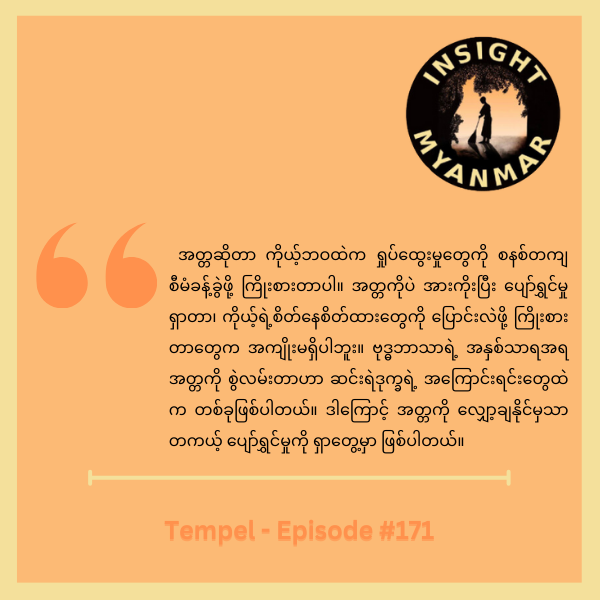The Illusion of Self
“Self is your attempt to lend some organization to the chaos. You realize the futility of trying to sort out your happiness with Self in the system, or personality development, or gaining sway over your sense doors and the objects you have contact with. That whole game is fruitless.”
Tempel Smith's meditation experience is a central theme in his podcast discussion. Smith is a seasoned practitioner and teacher of Vipassana meditation, deeply rooted in the Theravāda tradition. His meditation journey began as part of a broader search for personal growth and understanding, which eventually led him to study intensively in Burma. There, he immersed himself in the practices of mindfulness and insight meditation under the guidance of esteemed Burmese meditation teachers.
Smith shares how these teachings profoundly shaped his worldview and his approach to life. His experiences in intensive retreats and his commitment to mindfulness practice inform both his personal development and his activism. By integrating meditative wisdom into his daily life, Smith demonstrates how the principles of equanimity, compassion, and ethical living can serve as a foundation for meaningful social engagement and inner peace.
The quote narrates a pivotal moment of insight, one where the meditator’s struggle against chaos collapses under the weight of its own futility. It speaks to the human condition: the relentless effort to organize life, to carve out an identity amidst the swirling unpredictability of experience. "Self," it says, is the scaffolding we construct to hold back the tide of impermanence. We attempt to shape it with personality, with ambition, with control over our senses and their objects, believing this will bring happiness.
But as the quote reveals, this is a losing game. Happiness, true and enduring, cannot be wrangled from a world so impermanent and a self so illusory. This realization is both humbling and freeing. Humbling, because it dismantles the very foundation of our striving—the belief in a solid self that can be perfected or fulfilled. Freeing, because it invites us to step off the exhausting treadmill of improvement and control.
The meditator, upon realizing this, sees the game for what it is: fruitless, yes, but also unnecessary. Liberation begins not by winning the game, but by refusing to play. It is here, in the quiet clarity of letting go, that the chaos loses its sting and peace becomes possible.

